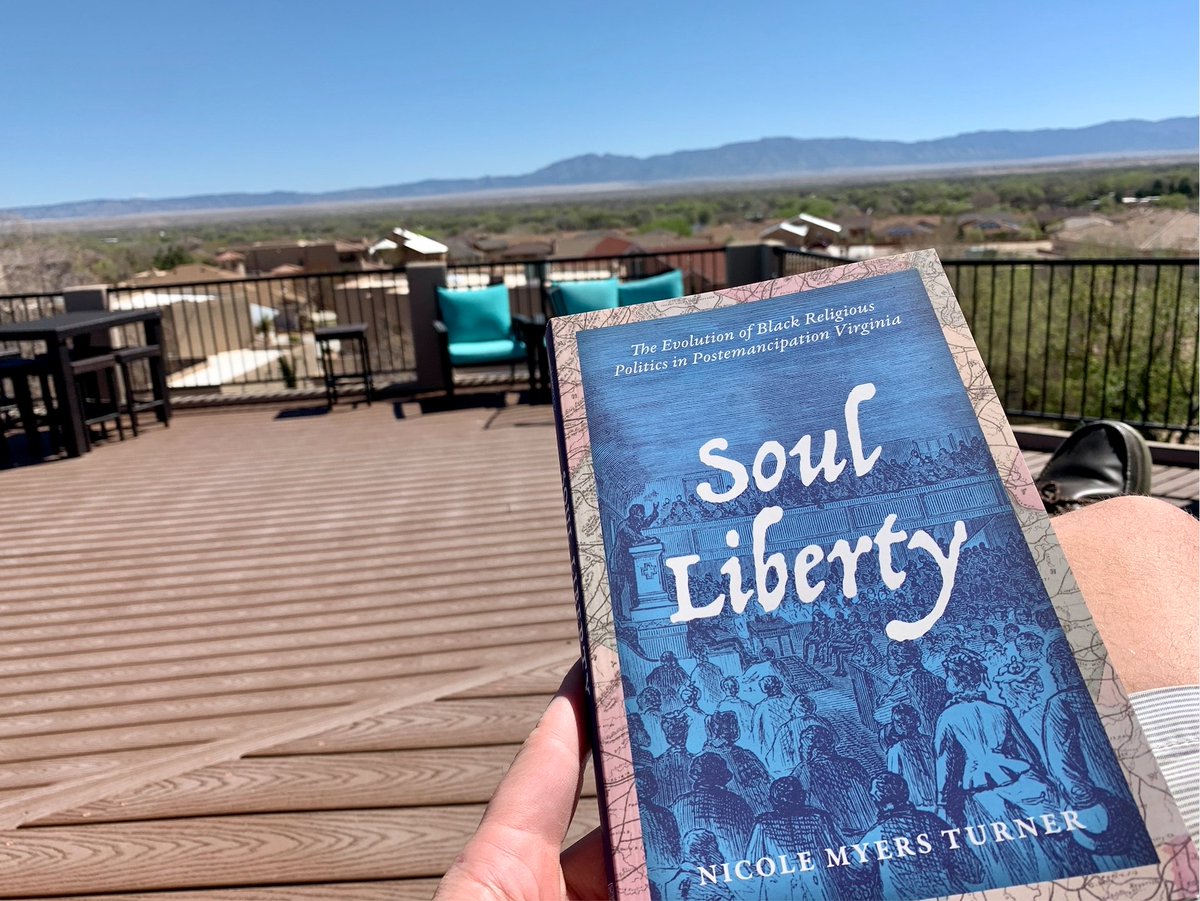Tonight& #39;s #reviewthread: @NicoMyTurn& #39;s SOUL LIBERTY: THE EVOLUTION OF BLACK RELIGIOUS POLITICS IN POSTEMANCIPATION VIRGINIA ( @uncpressblog).
(Reminder: capitalized words represent my categories.)
(Reminder: capitalized words represent my categories.)
GENERAL ARGUMENT: while scholars have often focused on the power of the black church in post-Civil War America, they have taken many facets of these institutions for granted. NMT pushes past traditional narratives to examine how they actually operated. /2
What she discovered is how these black denominations and conventions evolved due to changing circumstances, different allegiances, and dominant personalities. Black congregants learned how to organized and mobilize in this era, and changed the churches with them. /3
These changes included determining how best to mobilize political support, how to affiliate with white institutions, and how to work with existing political structures. They also experimented with gender roles and leader/laity relations. /4
The end result are black churches and multi-church conventions that were as malleable as they were powerful, demonstrating an ability to shift according to what is needed at the time. /5
SOMETHING NEW: historians have often pointed to the dynamic of powerful male preachers and active female congregants in these churches, but NMT demonstrates that that wasn& #39;t a predetermined dynamic, but instead learned over a decade of change. /6
Whether it be through the replication of (all-male) citizenship demands, participation in (mostly-male) educational institutions, or other circumstances, the gendered dynamic of church leadership developed slowly and wasn& #39;t fully formed from the start. /7
SOMETHING IMPRESSIVE: I was truly impressed with how NMT was able to dig into specific contexts of individual denominations and conventions--the level of detail is staggering--while also painting a broader story of Virginia and the South. /8
And though I haven& #39;t been able to dig into her digital mapping stuff yet, it seems she put a lot of thought into the digital representation of her research. /9
QUIBBLES: I found that, at times, NMT& #39;s analysis is so nuanced that it can be difficult to see the full implications of her analysis, especially when highlighting where her work differs from other scholars. In other words, I think she sometimes undersells her own conclusions. /10
CONCLUSION: This is a deep, complicated, and meditative analysis of black religion in the post-emancipation era that holds lessons not just for historians of the era, but for scholars interested in how religion, politics, and gender intersect. /11 https://www.amazon.com/Soul-Liberty-Evolution-Religious-Postemancipation/dp/1469655225">https://www.amazon.com/Soul-Libe...

 Read on Twitter
Read on Twitter


